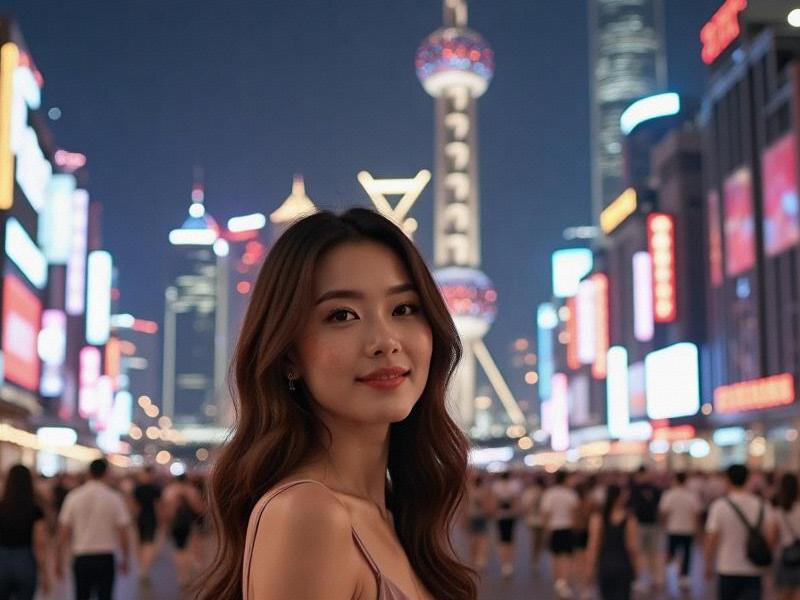The Shanghai Style Makers: How the City's Women Are Redefining Chinese Femininity
⏱ 2025-05-25 00:44 🔖 爱上海龙凤419
📢0℃

The sun filters through the plane trees of the Former French Concession as 26-year-old Mia Zhang adjusts her qipao-inspired streetwear for her daily livestream. With 4.3 million followers on Xiaohongshu, Zhang represents a new generation of Shanghai women who are reinventing Chinese femininity - not through rebellion against tradition, but through its creative reinterpretation.
Shanghai's female influencers operate at the intersection of multiple worlds:
• Traditional cheongsam tailors collaborating with streetwear designers
• Ancient hairpin artisans teaching 3D printing workshops
• Tea ceremony masters hosting mixology pop-ups
上海龙凤419会所 • Calligraphy teachers developing font design apps
Economic Impact Metrics:
- Female-led small businesses account for 38% of Shanghai's creative economy
- Beauty/lifestyle content created by Shanghai women generates ¥12.8 billion annually
上海喝茶群vx - 72% of China's top female influencers are Shanghai-based or educated
- "Her Economy" spending power in Shanghai grew 240% since 2020
Cultural architect Li Wen explains the phenomenon: "Shanghai women have always been China's style compass. What's new is how they're using digital platforms to turn personal aesthetics into cultural movements." Her "Modern Jiangnan" project trains rural women in textile skills while connecting them with urban designers.
上海花千坊龙凤 The movement faces challenges. Many creators report pressure to conform to algorithm-friendly content formats. "The platforms want either hyper-traditional or completely Westernized looks," says makeup artist Zoe Kang. "The real Shanghai style exists in the nuanced middle ground."
Educational institutions are responding. Donghua University's new "Cultural Interface Design" program teaches traditional crafts alongside digital storytelling. Its first graduating class was 89% female, with many launching hybrid brands that merge heritage techniques with contemporary design.
As evening falls on Anfu Road, the sidewalk cafes fill with women discussing collaborations over matcha cocktails - tech founders in minimalist hanfu, gallery curators in avant-garde silhouettes, finance professionals in tailored neo-zhongshan suits. Their effortless blending of influences captures Shanghai's unique position as both guardian and disruptor of Chinese cultural identity.
This isn't merely about fashion or beauty - it's about women claiming the right to define modern Chinese femininity on their own terms, using Shanghai's historical role as China's cultural laboratory to prototype new possibilities for self-expression in the digital age.
The Evolution of Shanghai's Entertainment Clubs: From Karaoke Parlors to Cultural HubsShanghai and the Surrounding Areas: A Dynamic Hub of Economic and Cultural DevelopmentShanghai: A Dynamic Metropolis of Innovation and CultureShanghai Style: How the City's Women Are Redefining Chinese Femininity in the 21st CenturyThe Great Carbon Rebellion: Shanghai's Silent Revolution Against Climate ChangeThe Shanghai Synthesis: How the City's Women Are Creating a New Asian Feminine IdealShanghai Glamour 3.0: How China's Most Cosmopolitan Women Are Rewriting the RulesShanghai's Transformation: A Journey of Urban Renaissance and InnovationShanghai Beauties in the Spotlight: A Glimpse into the City's Elegant WomenShanghai's Vibrant Entertainment Scene: A Melting Pot of Culture and Creativity
Shanghai 2025: The Radiant Core of the Yangtze River Delta MegaregionShanghai Glamour: How the City's Women Are Defining 21st Century Chinese FemininityNeon Dynasty: How Shanghai's Entertainment Clubs Are Redefining Global Nightlife Standards in 2025Midnight in Shanghai: How China's Glittering Metropolis Redefines Nightlife LuxuryShanghai's Sphere of Influence: How the Megacity is Reshaping Eastern ChinaThe Yangtze Delta Megaregion: How Shanghai and Its Neighbors Are Redefining Urban EconomicsThe Velvet Rope Economy: Inside Shanghai's Exclusive Entertainment Club SceneGilded Playgrounds: How Shanghai's Elite Entertainment Clubs Are Redefining Urban NightlifeThe Shanghai Nexus: How China's Financial Capital is Reshaping the Yangtze River Delta MegaregionShanghai 2025: The Silicon Valley of the East Reinvents Urban Living

